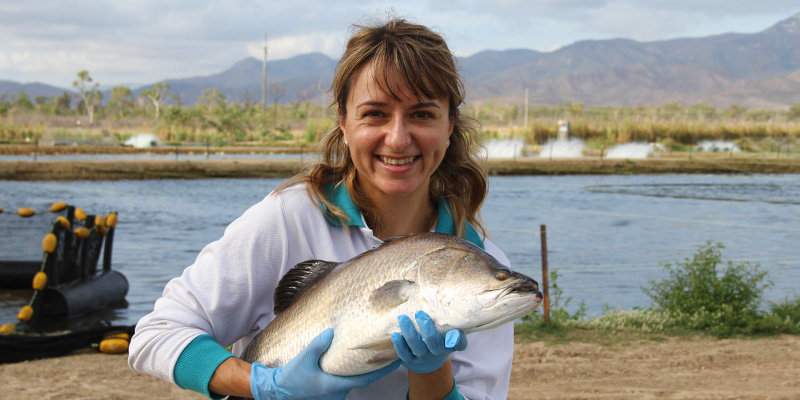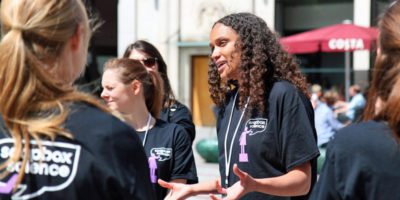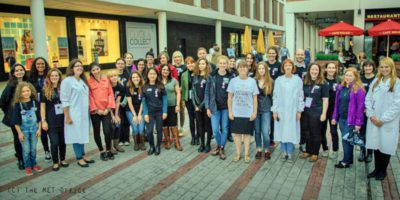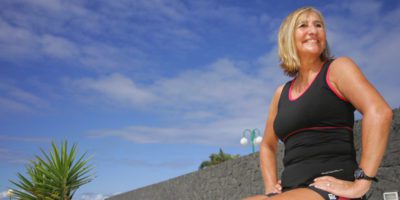Giana Gomes is an aquatic vet based at James Cook University in Australia. Aquaculture and aquatic animal health are important topics of her research background and activities. She came to Australia nine years ago, having studied at the Federal Rural de Pernambuco University, Brazil.
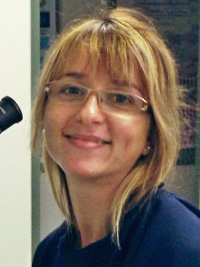
Giana is speaking at the Townsville Soapbox Science event, which takes place on Saturday 12th August 2017 at the Gregory Street Amphitheatre on the Strand. The title of her talk is: “Environmental DNA (eDNA): What creepiness is in the water?”
Exploring new options in veterinary science
I have always been fascinated by animals of all kinds, since I was a kid. When I decided to go to university I didn’t think twice about what course I would follow – veterinary science, of course! During my undergrad, I learned that vets can do a lot more than being a surgeon for small animals. The veterinarian course is very broad and rich with so many options not well explored by professionals.
It was when I graduated in 2003 and I got a job in the largest prawn hatchery from Brazil that I learned about aquaculture. In that moment, I saw in front of me a huge opportunity for career development in a completely new and male dominated field. I never looked back since. I’m very passionate about the work I do within the aquaculture and aquatic animal health field.
Diving into aquaculture
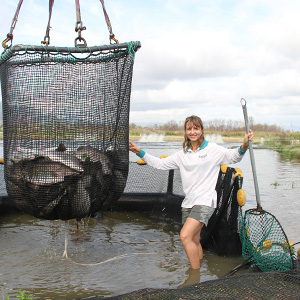
Being a Ph.D. student means you are willing to learn and study. I get involved in many activities including: literature review and research about what other researchers are doing, writing research proposals, grant applications (to find resources to develop my research), scientific articles writing, project planning, experiment design, field trips to farms, collection of data, molecular laboratory activities (e.g. DNA extraction and amplification, sequencing DNA), fish parasitology laboratory activities, tutoring and marking for aquaculture disciplines.
As a Ph.D. candidate, I had to develop my skills on oral presentations so I attended both domestic and international conferences, webinars, seminars and workshops. Another important part of the Ph.D. training is to learn diplomacy and how to deal with people from different backgrounds (e.g. farm technicians, managers and CEOs, students from different countries, supervisors, governmental agencies authorities, sales people, etc.) aiming for positive outcomes.
Soapbox Science makes a triumphant return to Australia
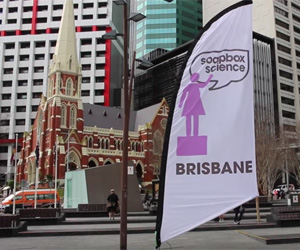
I wasn’t aware of the previous Australian Soapbox Science event until this year when I decided to get involved. However, I believe that events like Soapbox Science are here to stay as they promote women in science, female leaders and role models for the new generation of young girls. It is time to definitely change stereotypes about what girls and women should and shouldn’t be doing. Women are as capable as men in any field, including science.
I will be talking about the fascinating world of hidden DNA under the water. As part of my Ph.D., I have been developing news ways to detect fish parasites before animals get sick. One way to do that is by using what we call environmental DNA (eDNA), which is a molecular technique commonly used by forensics (e.g. identifying DNA from crime scenes using blood drops and saliva).
Using eDNA methodology, I’m able to identify which parasite and how much of it I have in fish ponds. Knowing that, I’m able to help farmers to early identify potential disease threats before animals get infected by harmful parasites! I will use the work I have been doing in the last four years of my Ph.D. as preparation for my Soapbox Science talk. The presentations and research articles I have published during my Ph.D. will help me in the process. I have few ideas of how to make it very interesting by using fish tanks and parasites from our fish parasitology lab.
Women are as capable as men in any field, including science
I believe that events like Soapbox Science are here to stay and promote women in science, women leaders and role models for the new generation of young girls. It is time to definitely change stereotypes about what girls and women should and shouldn’t be doing. Women are as capable as men in any field, including science.
Events like Soapbox Science are a great opportunity to showcase amazing research projects developed by amazing female scientists. Science has always been associated to the image of men, however, recognising greater participation and empowerment of women in the science context has the potential to deliver important gains in economic output, livelihood potential and social welfare. Women should be involved in all aspects of science, including leadership, research and extension.
Gender equity, a global challenge
Independently of location, the challenges and prejudices faced by women are the same. Of course, in some countries these challenges are worse than others, but, generally speaking, we women face the same difficulties. It is clear that wherever we look, the proportion of women in leadership positions around the world is still very small when compared to men.
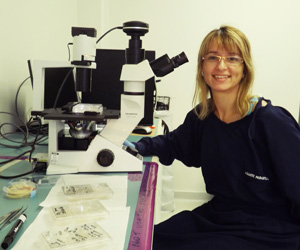
Introducing SAGE Pilot, Athena SWAN’s Australian cousin
The SAGE programme is recent to Australia, so it is still early on to understand the impact it will cause. But the fact the project has been implemented by so many Australian universities, including James Cook University, is a positive reflection of the mind set change that has started in the country about gender equity in science. I hope the SAGE programme can bring about a new way of thinking with positive outcomes, starting by female scientists raising awareness about gender equity and what it means for the future of science.
Coming up
I’m about to submit my Ph.D. thesis and I’m looking for job opportunities within the aquaculture research sector. Independently from location I will continue to advocate and work for gender equity in science.
https://research.jcu.edu.au/cstfa/people/students/giana-bastos-gomes
https://twitter.com/gianabgomes
http://soapboxscience.org/soapbox-science-2017-townsville/

